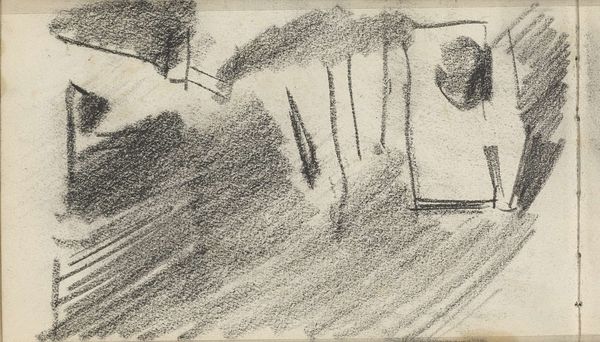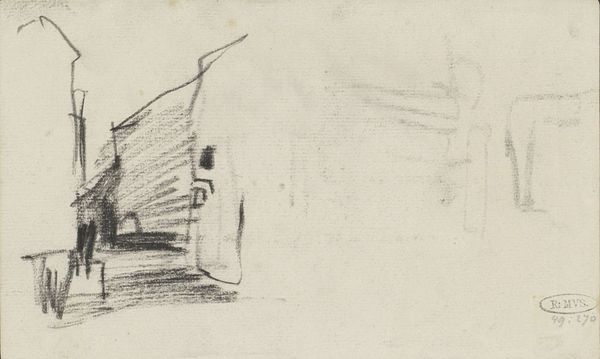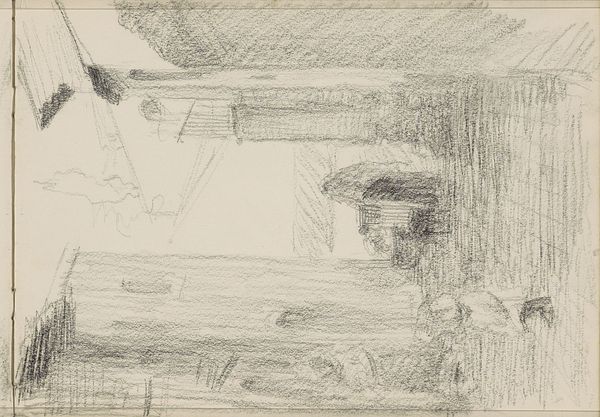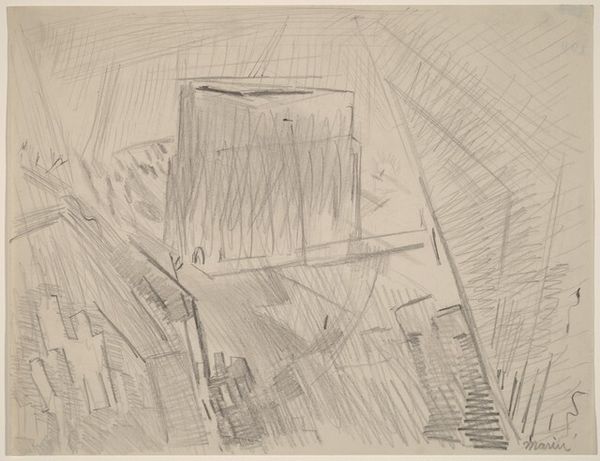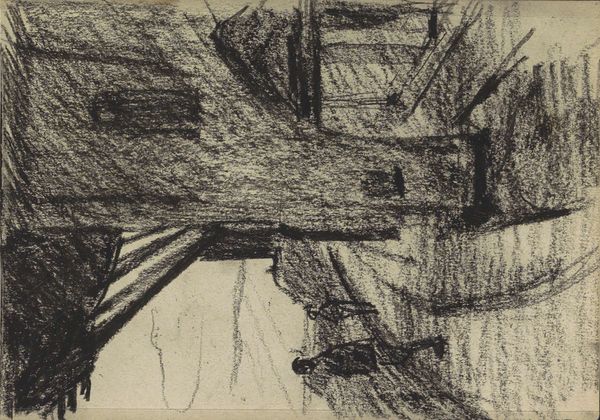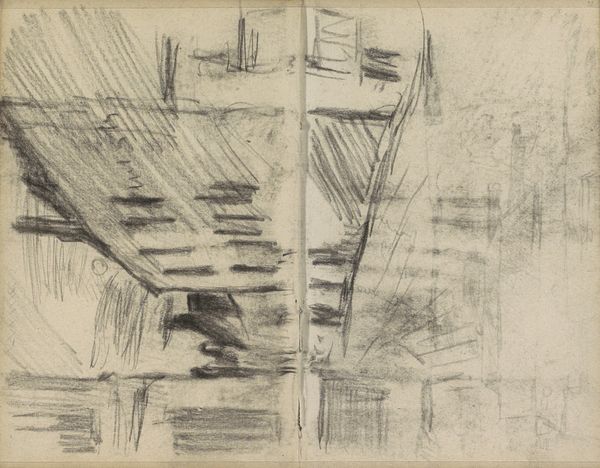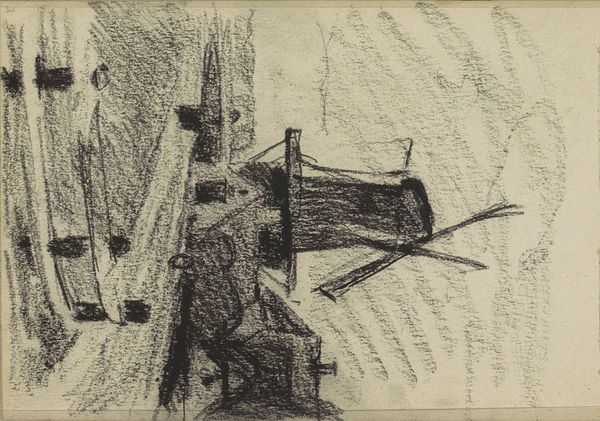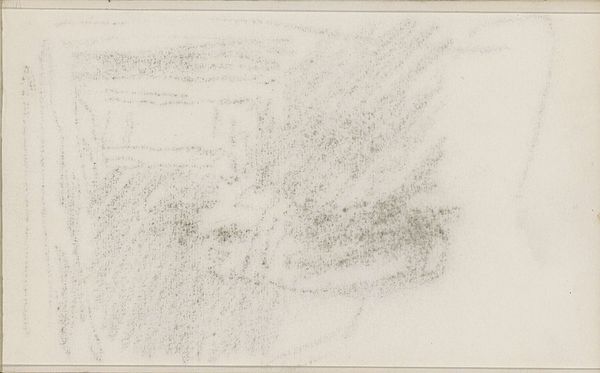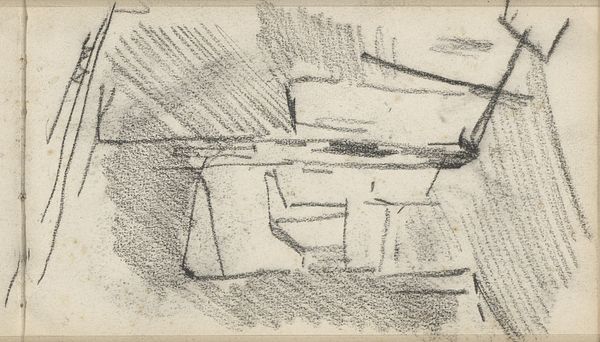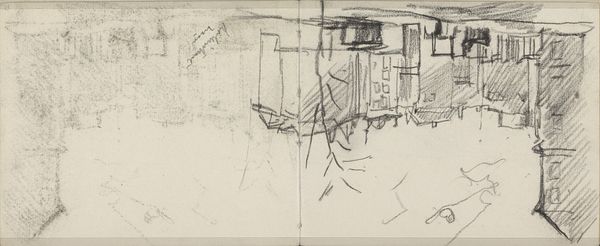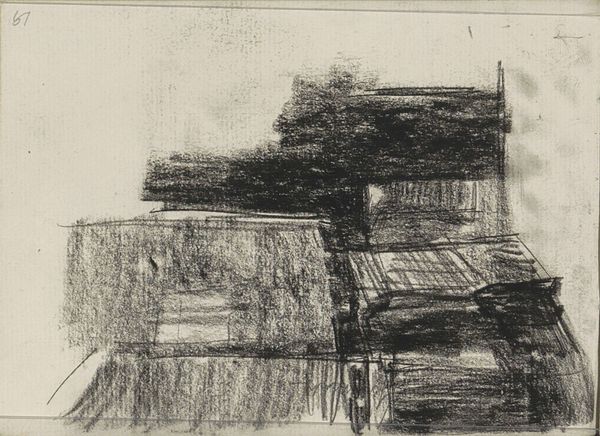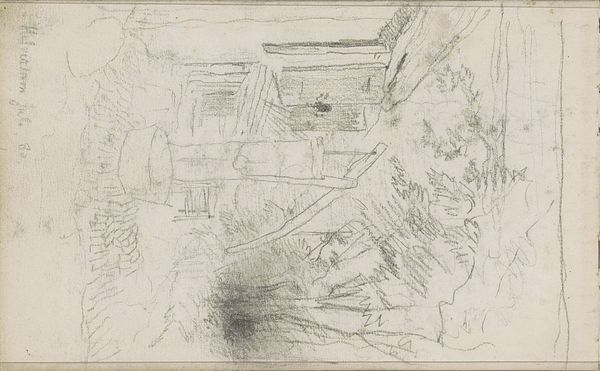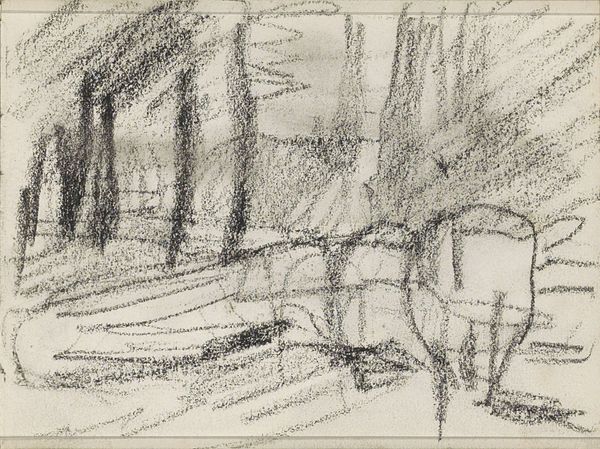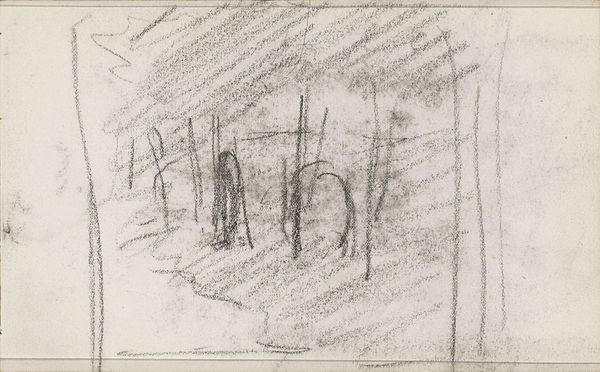
drawing, pencil, graphite
#
drawing
#
impressionism
#
pencil sketch
#
landscape
#
pencil
#
graphite
#
sketchbook drawing
Copyright: Rijks Museum: Open Domain
Curator: Looking at this drawing by George Hendrik Breitner, dating back to between 1883 and 1885, currently residing at the Rijksmuseum, what's your initial impression? It is identified as a study, rendered in pencil and graphite on paper. Editor: My first thought is of erasure, or of something partially remembered. There's a shadowy, indistinct quality that gives it an almost ghostly presence, as if it is fading right before my eyes. It evokes a feeling of temporal fragility. Curator: That's perceptive. Considering Breitner's interest in capturing the fleeting moments of city life, this "erasure" could be seen as an intentional artistic choice. Perhaps to communicate the fleeting nature of modern urban experience? Editor: Absolutely. The heavy reliance on shading, creating these deep contrasts between light and shadow, serves to dramatize a commonplace scene. I'm curious to know if Breitner explored related themes of urban alienation or isolation within a burgeoning capitalist society. Curator: Given Breitner’s work chronicling the urban experience, there may be that connection. Looking at the mark-making itself, it evokes symbolism tied to raw immediacy of experience over careful planning, capturing raw energy rather than precision, which aligns him with Impressionist ideology. What do you think? Editor: I agree about the energy; it feels very raw and unprocessed. The roughness of the graphite work brings out some sort of inner anxiety within the city's expansion in a way that, through this aesthetic and the material rawness, allows the scene to remain in a space of discomfort. The landscape feels unrefined and unsettling. Curator: That’s a powerful way to phrase it, the feeling of discomfort is something that maybe his intended audiences had difficulties understanding then, maybe? But can perceive more easily now. Editor: Perhaps. Well, thinking about the way it interacts with our present is what I take from it. Thanks for bringing this evocative work to my attention. Curator: My pleasure. Seeing it through your eyes is very illuminating. It reinforces how relevant it continues to be even today.
Comments
No comments
Be the first to comment and join the conversation on the ultimate creative platform.
